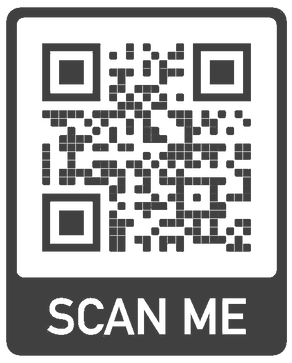 Diabetes is a chronic condition that affects millions of people worldwide. It is characterized by high blood sugar levels and can lead to a range of complications, including nerve damage, kidney damage, and cardiovascular disease. Acupuncture and Chinese Medicine can be effective in managing diabetes by addressing the underlying imbalances that contribute to the condition. Acupuncture is a form of Traditional Chinese Medicine (TCM) that involves the insertion of fine needles into specific points on the body. These points are believed to be connected by meridians, or pathways, through which energy, or qi, flows. By stimulating these points, acupuncture is thought to balance the flow of qi and promote healing.
Acupuncture has been shown to be effective in managing diabetes by regulating blood sugar levels. Studies have shown that acupuncture can help improve insulin sensitivity and reduce insulin resistance, two key factors that contribute to high blood sugar levels. Acupuncture has also been shown to be effective in reducing inflammation, which is a common complication of diabetes. In addition to acupuncture, Chinese herbal medicine can also be used to manage diabetes. Chinese herbs are used in combination to create customized formulas tailored to each patient's individual needs. These formulas are designed to address the underlying imbalances that contribute to diabetes, as well as to alleviate symptoms. One of the most commonly used herbs in the treatment of diabetes is Momordica charantia, also known as bitter melon. This herb has been shown to be effective in reducing blood sugar levels and improving insulin sensitivity. Another herb commonly used in the treatment of diabetes is Astragalus membranaceus. This herb has been shown to improve glucose metabolism and reduce insulin resistance. In addition to acupuncture and herbal medicine, dietary therapy is another important aspect of TCM treatment for diabetes. In TCM, diabetes is considered to be a condition of excess heat in the body. To address this excess heat, TCM practitioners recommend a diet that is low in sugar and high in foods that have a cooling effect on the body. This includes foods such as fruits, vegetables, and whole grains. Foods that are high in fat and animal protein should be avoided, as they can exacerbate diabetes symptoms. In conclusion, acupuncture and Chinese Medicine can offer a holistic and copmlementary approach to managing diabetes and its associated complications. Acupuncture, Chinese herbal medicine and dietary therapy can all be tailored to meet the unique needs of each patient. By working with qualified TCM physicians, diabetes patients can receive safe and effective treatment that is tailored to their individual needs. Footnote: It is important to note that TCM should not be used as a substitute for conventional medical treatment for diabetes. Rather, TCM can be used in conjunction with conventional treatment to help manage the condition and improve overall health and well-being.  Cancer is a complex disease that can cause a range of physical and emotional symptoms. While conventional cancer treatments such as chemotherapy and radiation therapy are essential and effective in treating cancer, they can also cause a range of side effects that can impact a patient's quality of life. Acupuncture and Chinese Medicine may offer a complementary approach to managing cancer and cancer treatment side effects. Acupuncture is a traditional Chinese medicine technique that involves the insertion of thin needles into specific points on the body. It is believed to work by promoting the flow of qi, or energy, throughout the body. Acupuncture has been used for centuries to treat a wide range of conditions, including cancer and cancer treatment side effects.
One way that acupuncture may help manage cancer and cancer treatment side effects is by reducing pain. Cancer and cancer treatments can cause pain in various parts of the body, and acupuncture has been shown to be effective in reducing pain levels. Acupuncture can help stimulate the release of endorphins, which are natural painkillers produced by the body. Acupuncture may also be helpful in managing chemotherapy-induced nausea and vomiting. Chemotherapy can cause nausea and vomiting, which can impact a patient's quality of life. Acupuncture has been shown to be effective in reducing the frequency and severity of chemotherapy-induced nausea and vomiting. It can help stimulate the release of neurotransmitters such as serotonin, which can help reduce nausea and vomiting. Another way that acupuncture may help manage cancer and cancer treatment side effects is by reducing anxiety and depression. Cancer and cancer treatments can be stressful and can cause emotional distress. Acupuncture has been shown to have a calming effect on the body and can help reduce anxiety and depression levels. It can help stimulate the release of neurotransmitters such as dopamine and serotonin, which are associated with feelings of happiness and well-being. Chinese herbal medicine is another aspect of traditional Chinese medicine that may be beneficial for managing cancer and cancer treatment side effects. Chinese herbal medicine involves using natural herbs and plant extracts to treat various conditions. In TCM theory, cancer is often seen as a manifestation of an internal imbalance, such as a deficiency of qi or blood. Chinese herbal medicine can be used to address these imbalances and promote healing. One commonly used herb in the treatment of cancer is astragalus. Astragalus has immune-boosting properties and can help stimulate the body's natural defense mechanisms. Another herb that may be beneficial for cancer patients is ginseng. Ginseng has anti-inflammatory and anti-tumor properties and can help reduce fatigue and improve quality of life. In addition to acupuncture and Chinese herbal medicine, dietary therapy is another aspect of traditional Chinese medicine that may be helpful for managing cancer and cancer treatment side effects. In TCM theory, certain foods can be beneficial for promoting health and reducing the risk of cancer, while others can exacerbate symptoms. A TCM physician may recommend dietary changes based on a patient's individual constitution and the nature of their condition. In general, a TCM diet for cancer patients may include foods that are easy to digest and promote overall health. These foods may include soups, congee, and lightly steamed vegetables. A TCM practitioner may also recommend avoiding foods that are considered detrimental to health, such as processed foods and sugar. Mind-body practices such as meditation and Qigong may also be beneficial for managing cancer and cancer treatment side effects. These practices can help reduce stress and promote relaxation, which can be helpful for managing symptoms such as pain, nausea, and fatigue. In conclusion, acupuncture and Chinese Medicine may offer a complementary approach to managing cancer and cancer treatment side effects. These modalities can be used in conjunction with conventional treatments to reduce pain, nausea, and other symptoms, as well as to promote overall health and well-being. Acupuncture, Chinese herbal medicine, dietary therapy, and mind-body practices can all be tailored to meet the unique needs of each patient. Footnote: It is important to note that acupuncture and Chinese Medicine are not intended to replace conventional cancer treatments. Rather, they can be used as a complementary approach to enhance the effectiveness of conventional treatments and improve the quality of life of cancer patients. In addition, it is important for cancer patients to inform their healthcare providers about any complementary therapies they are using, including acupuncture and Chinese Medicine. This can help ensure that there are no potential interactions between these therapies and conventional cancer treatments.  Bloating and abdominal pain are common symptoms that can be caused by a variety of factors, including digestive issues, stress, and dietary factors. While conventional treatments such as over-the-counter medications can be effective in managing these symptoms, acupuncture and Chinese Medicine may offer a complementary approach to reducing bloating and abdominal pain. Acupuncture is a traditional Chinese medicine technique that involves the insertion of thin needles into specific points on the body. It is believed to work by promoting the flow of qi, or energy, throughout the body. Acupuncture has been used for centuries to treat a wide range of conditions, including digestive issues such as bloating and abdominal pain.
One way that acupuncture may help manage bloating and abdominal pain is by regulating digestive function. Acupuncture can help stimulate digestive organs, such as the stomach and intestines, to function more efficiently. It can also help reduce inflammation and improve the absorption of nutrients. A systematic review of clinical trials found acupuncture to be effective in reducing abdominal bloating and distension. Another way that acupuncture may help manage bloating and abdominal pain is by reducing stress. Stress is a common trigger for digestive issues, and acupuncture has been shown to have a calming effect on the body. Acupuncture can help reduce stress by promoting relaxation and reducing the release of stress hormones such as cortisol. Chinese herbal medicine is another aspect of traditional Chinese medicine that can be beneficial for managing bloating and abdominal pain. Chinese herbal medicine involves using natural herbs and plant extracts to treat various conditions. In TCM theory, bloating and abdominal pain are often seen as a manifestation of an internal imbalance, such as a deficiency of qi or blood. Chinese herbal medicine can be used to address these imbalances and promote healing. In addition to acupuncture and Chinese herbal medicine, dietary therapy is another aspect of traditional Chinese medicine that may be helpful for managing bloating and abdominal pain. In TCM theory, certain foods can cause digestive issues, while others can help promote digestive health. A TCM physician may recommend dietary changes based on a patient's individual constitution and the nature of their condition. In general, a TCM diet for bloating and abdominal pain may include foods that are easy to digest and promote overall health. These foods may include soups, congee, and lightly steamed vegetables. A TCM physician may also recommend avoiding foods that are considered detrimental to digestive health, such as spicy and greasy foods. Mind-body practices such as meditation and Qigong may also be beneficial for managing bloating and abdominal pain. These practices can help reduce stress and promote relaxation, which can be helpful for managing symptoms such as bloating and abdominal pain. In conclusion, acupuncture and Chinese Medicine may offer a complementary approach to managing bloating and abdominal pain. These modalities can be used in conjunction with conventional treatments to regulate digestive function, reduce inflammation, and promote relaxation. A TCM physician takes a personalized approach to treatment, considering each patient's individual constitution and the nature of their condition.  Migraines are a type of headache that can cause severe pain and other symptoms such as sensitivity to light and sound, nausea, and vomiting. While conventional treatments such as pain relievers and preventative medications can be effective in managing migraines, acupuncture and Chinese Medicine may offer a complementary approach to reducing the frequency and severity of migraines. Acupuncture is a traditional Chinese medicine technique that involves the insertion of thin needles into specific points on the body. It is believed to work by promoting the flow of qi, or energy, throughout the body. Acupuncture has been used for centuries to treat a wide range of conditions, including headaches and migraines.
One way that acupuncture may help manage migraines is by reducing pain. Acupuncture has been shown to have analgesic, or pain-relieving, effects. It can help reduce pain by increasing blood flow to the affected area, promoting the release of endorphins, and reducing inflammation. Another way that acupuncture may help manage migraines is by reducing stress. Stress is a common trigger for migraines, and acupuncture has been shown to have a calming effect on the body. Acupuncture can help reduce stress by promoting relaxation and reducing the release of stress hormones such as cortisol. Chinese herbal medicine is another aspect of traditional Chinese medicine that may be beneficial for managing migraines. Chinese herbal medicine involves using natural herbs and plant extracts to treat various conditions. In TCM theory, migraines are often seen as a manifestation of an internal imbalance, such as a deficiency of qi or blood. Chinese herbal medicine can be used to address these imbalances and promote healing. In addition to acupuncture and Chinese herbal medicine, dietary therapy is another aspect of traditional Chinese medicine that may be helpful for managing migraines. In TCM theory, certain foods can trigger migraines, while others can help reduce inflammation and promote overall health. A TCM physician may recommend dietary changes based on a patient's individual constitution and the nature of their condition. In general, a TCM diet for migraines may include foods that are nourishing to the blood and promote overall health. These foods may include leafy green vegetables, fruits, nuts, and seeds. A TCM practitioner may also recommend avoiding foods that are considered detrimental to migraine health, such as processed foods, sugar, and caffeine. Mind-body practices such as meditation and Qigong may also be beneficial for managing migraines. These practices can help reduce stress and promote relaxation, which can be helpful for managing symptoms such as pain and nausea. A US study found that a Qigong program was effective in reducing the frequency and severity of migraines. In conclusion, acupuncture and Chinese Medicine may offer a complementary approach to managing migraines. These modalities can be used in conjunction with conventional treatments to reduce pain, promote healing, and reduce stress. A TCM practitioner takes a personalized approach to treatment, considering each patient's individual constitution and the nature of their condition. |
About UsAt Singeast TCM, we provide comprehensive diagnosis and personalised TCM treatment services at the convenience of your home.
Contact UsTo make a home visit appointment, reach us by the phone number or QR code below.
Archives
May 2024
ALL RIGHTS RESERVED © SINGEAST TCM
|



 RSS Feed
RSS Feed
